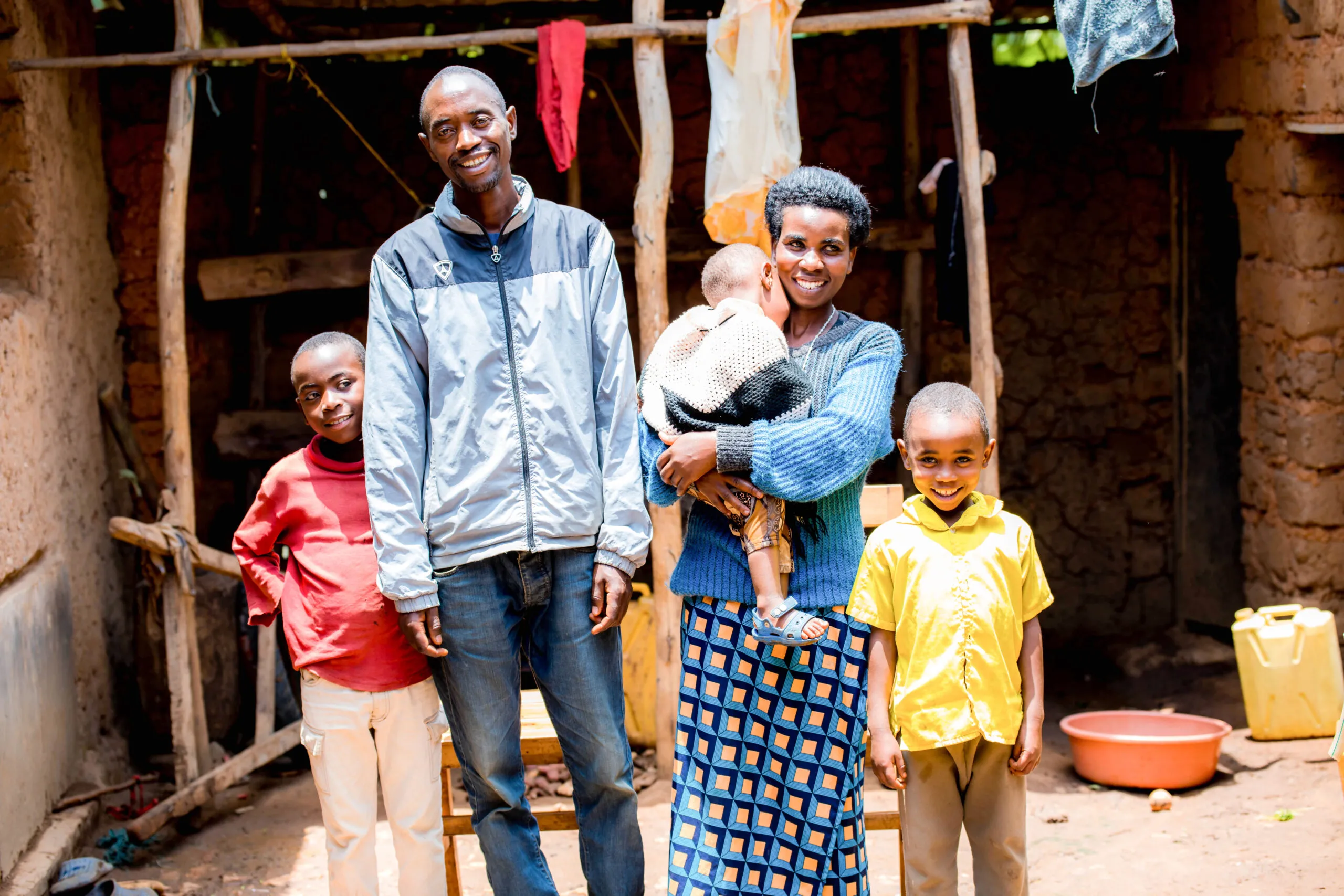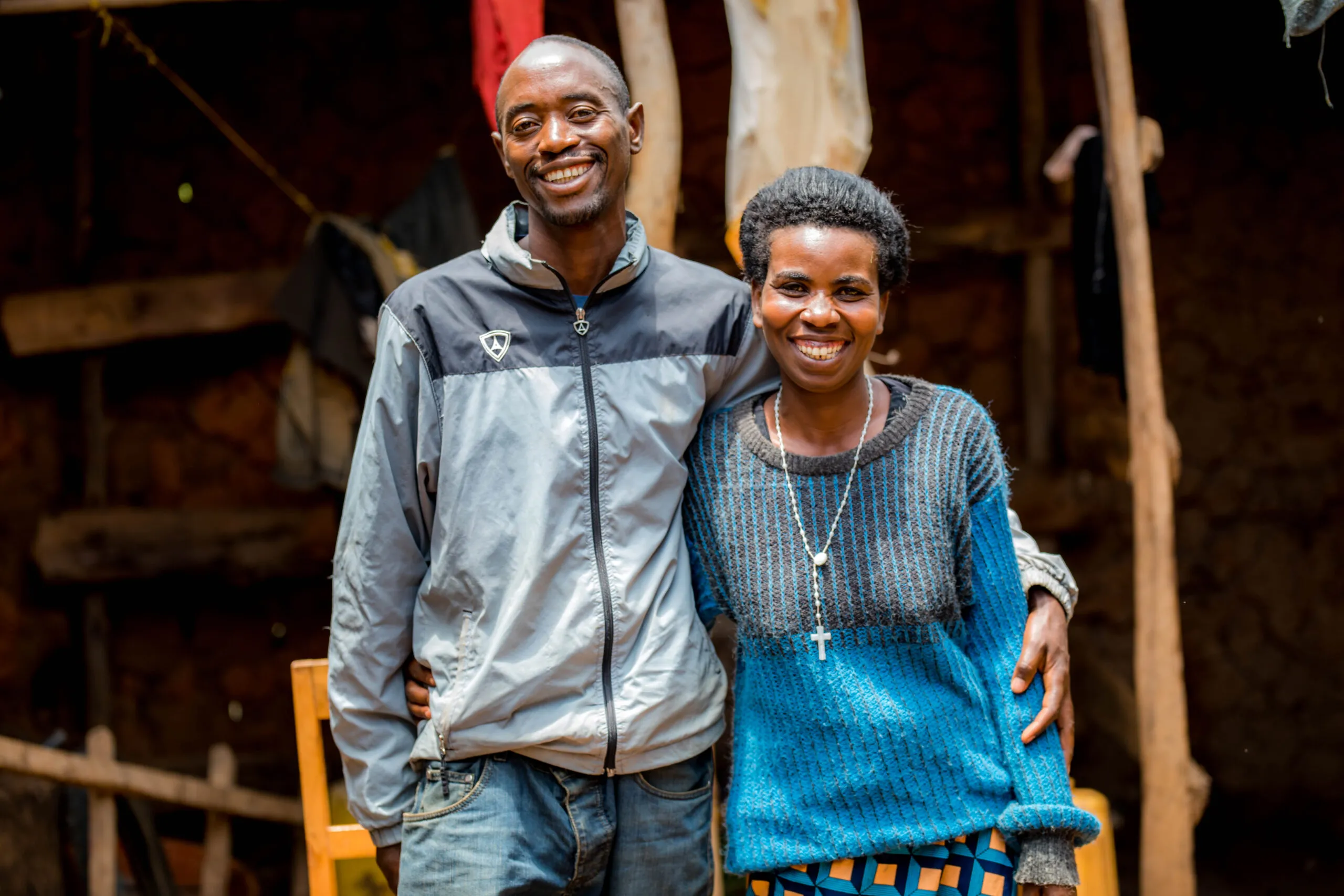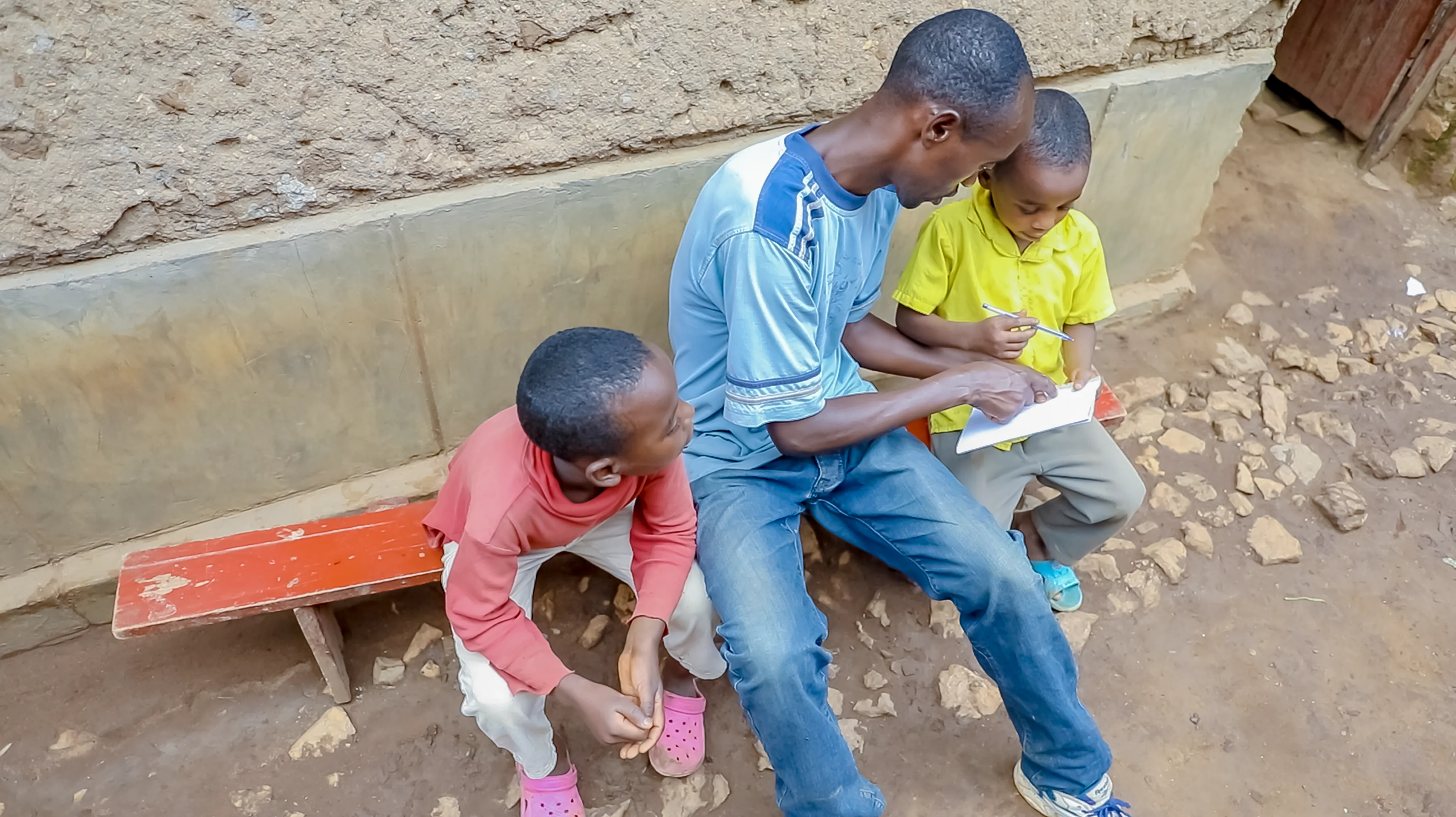Herman Shumbusho and Marie Savera Ufitamahoro live with their three young children in Nombe village, not far from Kigali, the Rwandan capital. The couple has seen a complete transformation in their household since they became involved in the Every Voice Counts (EVC) program.
Marie’s childhood was difficult. “I grew up in a poor family and I was the fifth child out of ten. My dad did not have enough means to help us and I did not complete primary school,” she says. “I thought marrying Shumbusho [Herman] would be a hiding place for me. Little did I know that the man of my dreams would be tough on me.”
Early in their marriage, Herman was abusive to Marie and became more violent under the influence of alcohol.
“Instead of bringing home all the money I had earned in a day, I would come home drunk at midnight and beat my wife,” he says.
Things started to change when a role model from the EVC program visited their home to discuss domestic violence. “At the beginning it was not so easy,” Herman says. “I would usually end discussions with Theogene, the role model, but slowly I started to notice the importance of what he was telling me, and then I started changing.”



